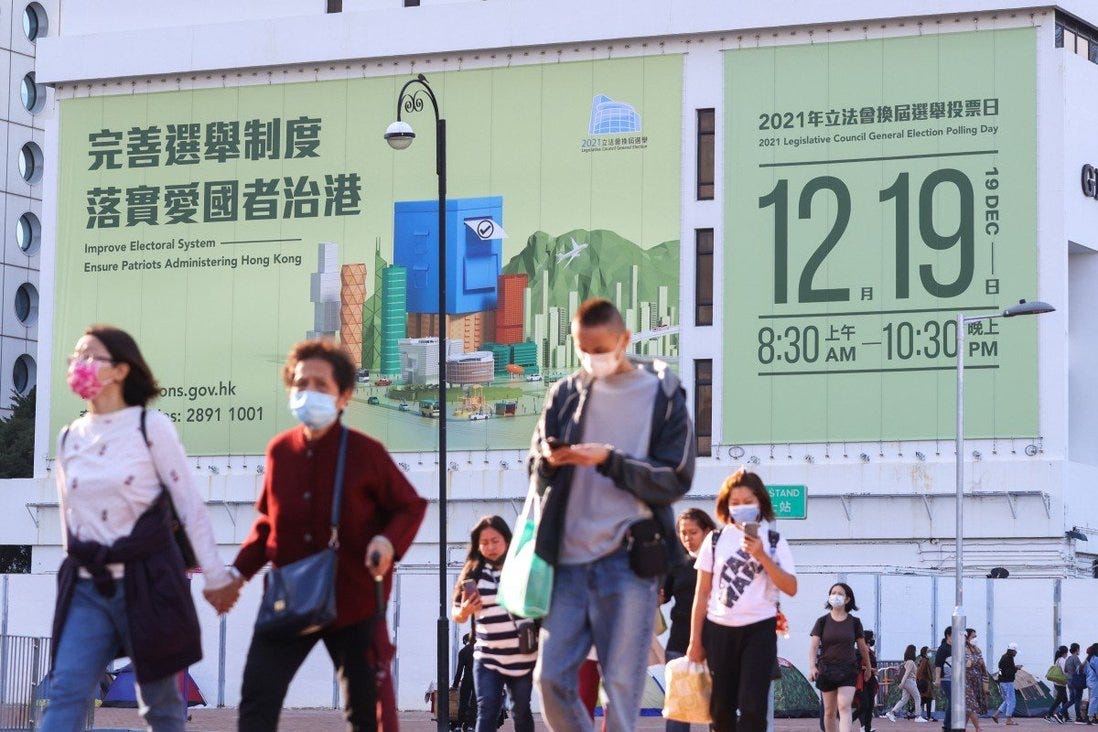Hong Kong Readies for an Electoral Charade
China redesigns election process so that only ‘patriots’ need apply
On Sunday, December 19, Hong Kong’s citizens are supposed to go to the polls in new elections redesigned at Beijing’s direction since the crackdown began on the independent territory a year ago. In most jurisdictions, what the authorities are up to would be regarded as blatant bribery. But anything now goes in Hong Kong when it suits the puppets doing B…
Keep reading with a 7-day free trial
Subscribe to Asia Sentinel to keep reading this post and get 7 days of free access to the full post archives.

